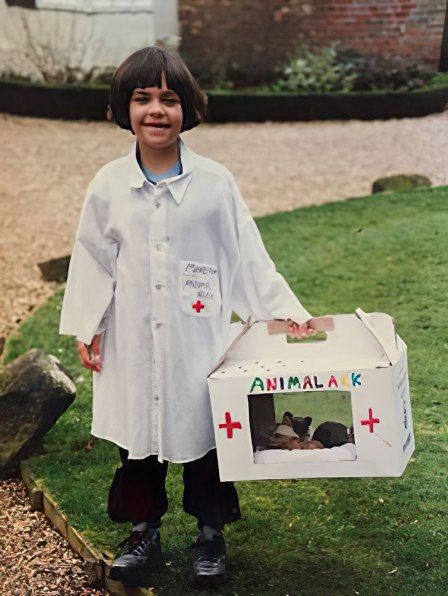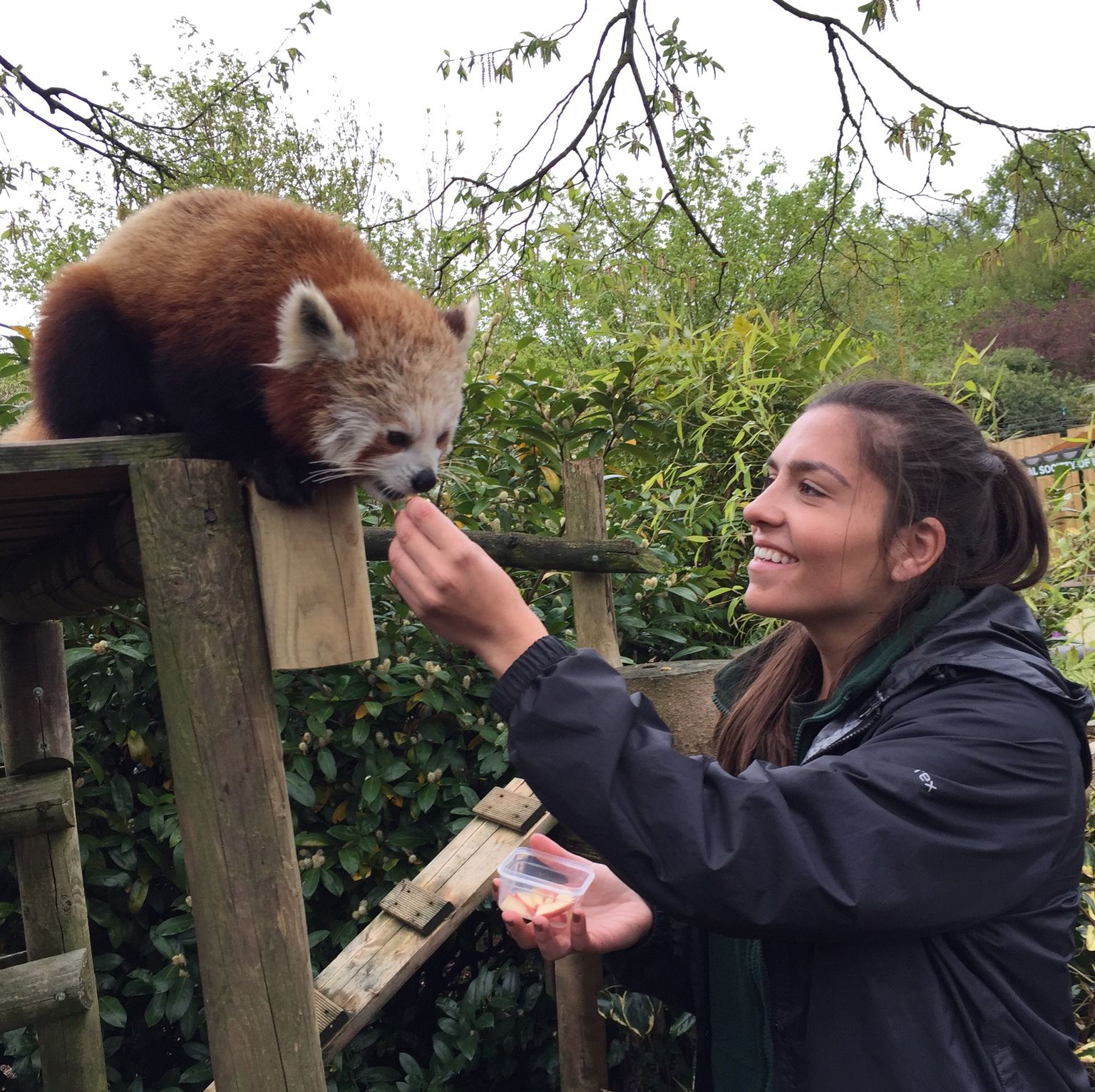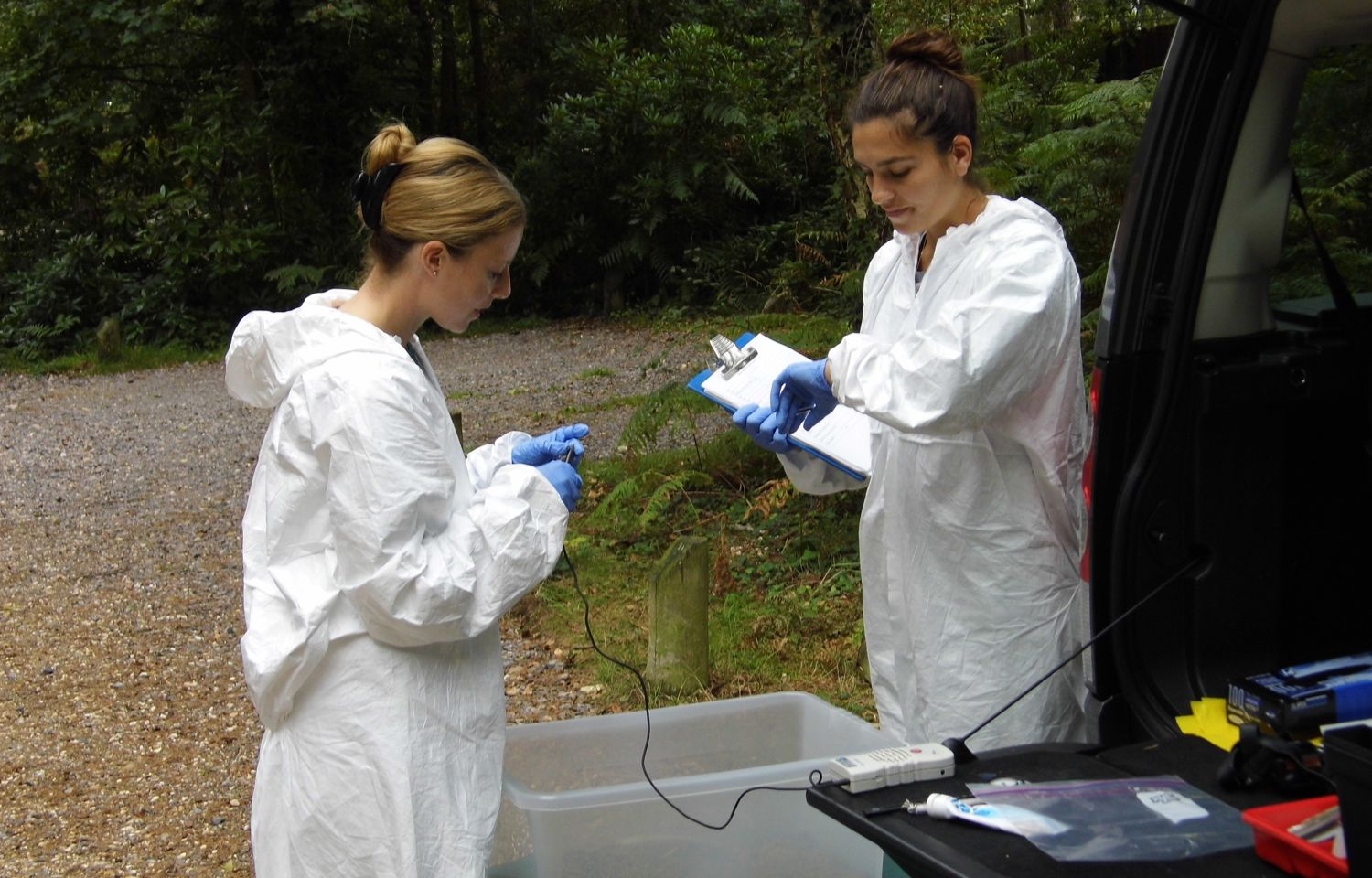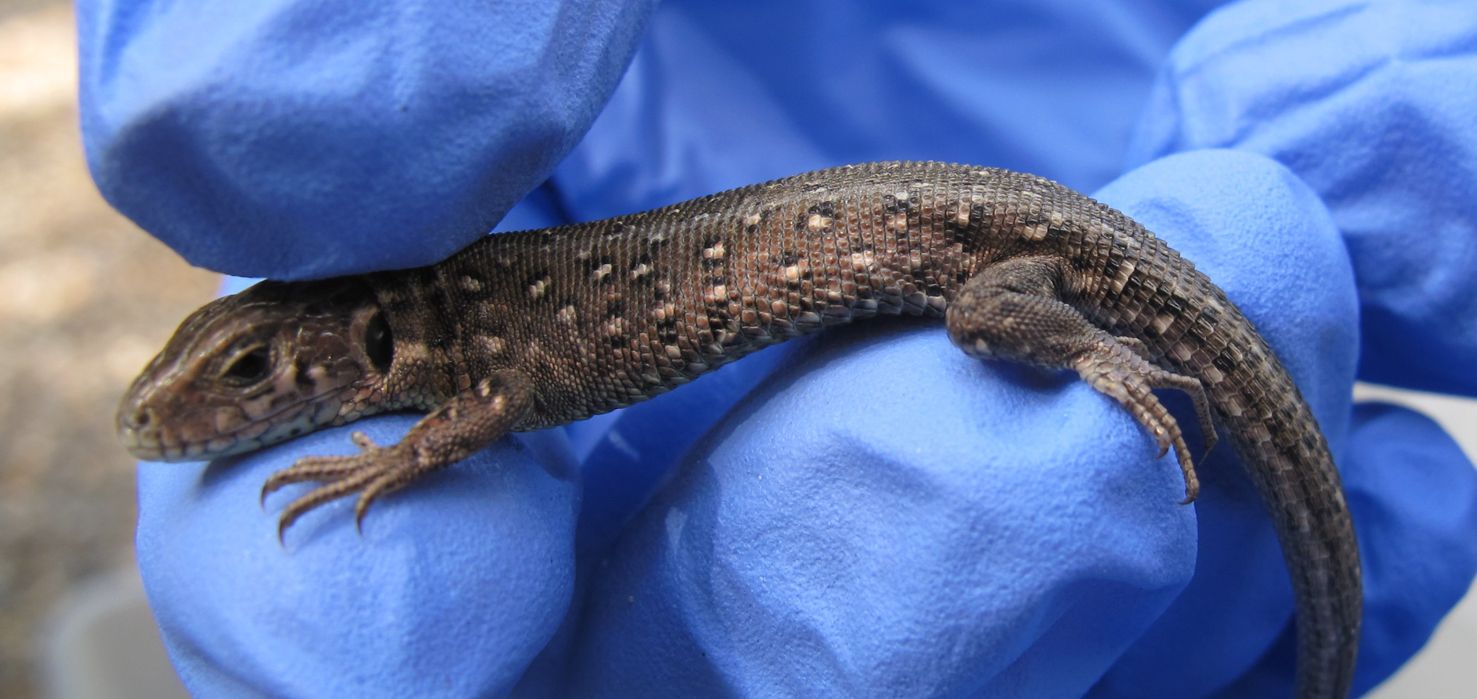Changing your career, at any stage of life, can be a hugely daunting process and one that may feel out of reach for many. I was 26 when I took a leap of faith and left my job in financial PR to explore my passion for the natural world. It’s the best decision I ever made but, looking back, I wish there were a few things I had known to make the change a little easier.
Where my journey began
Perhaps the hardest part of a career change is working out what you want to do. In my case, I have always had a lifelong love of animals but never knew how to make that into a meaningful career.
As a child, I grew up around animals and always wanted to be a vet but as I wasn’t top of my class in sciences, I believed that it wasn’t an option for me. From an early age I was diagnosed with dyslexia, struggled with maths and sciences and, sadly, I was told that it was very unlikely I would gain a place at vet school and so I should focus my efforts elsewhere. I know now that this is not necessarily true and there are a variety of ways to work in the veterinary and animal health industry and you shouldn’t give up on your dream career, even if it may not be the easiest route.

Following that advice, I did a degree in Psychology at Sheffield University, mainly because this was my highest grade at A level. So here was the first misguided turn on my career path, following my grades rather than my passion. I wish someone had told me as a teenager that just because you’re not top of the class, doesn’t mean you won’t succeed in that area, and your passion for something is almost always more valuable.
After my degree, I took a job in a press relations (PR) agency in London, working to help businesses create a positive reputation with the public, and I continued working in different PR roles for six years. That was until I woke up one morning and decided it was now or never to change my career path and began researching careers working with animals.
How I began changing my career
The first steps for me, bearing in mind there are many ways to begin changing your career, was to identify specifically what I wanted to do and spend time researching what jobs existed in that field. Conservation in general is a wide field and even wildlife conservation includes many different roles such as wildlife vet, zookeeper, ecologist, lab technician, woodland managers, project managers, education officers, reserve managers, species officers, the list goes on. There is only so much you can discover from online research and so my next step was to ask friends and family if they knew anyone in this industry and I started speaking with people in different organisations, discussing their roles and their pros and cons. This really gave me an insight into the specialisms that exist in conservation and started the ball rolling to get some volunteering work.
I also started looking on social media for advice and found groups of other aspiring and current conservationists sharing resources and contacts, as well as posting paid and unpaid job opportunities in groups such as the Wildlife Workers’ Network and the Wildlife Science Career Network.

After spending weeks looking for jobs, I soon realised that it wasn’t going to be as easy or immediate as just applying. I decided to apply for lots, and I mean lots, of weekend volunteering roles to gain some experience and understanding of the sector.
I chose a variety of different volunteering jobs to see what interested me most. I started volunteering for a local zoo, Paradise Wildlife Park, which has a great volunteer system and really showed the behind the scenes of working in a zoo. I also volunteered with the Blue Cross helping care for domestic animals and at a wildlife rehabilitation centre called Tiggywinkles.

Finally, after a long day in the office, I decided I needed to dedicate myself full time to looking for a job in conservation and signed up to be a conservation volunteer in South Africa with Wildlife Act. Whilst in South Africa, a family friend introduced me to a charity called Project Rhino and mentioned they would like some help with their PR and fundraising. I was more than happy to help and provided assistance with their press releases and joined them on a press trip to a local reservation with journalists from around the world to show them first hand the drastic anti-poaching interventions that are being taken, such as dehorning of white rhino, in order to protect these animals.
After nearly a year of volunteering, I can safely say that the experiences and knowledge I gained were invaluable and have got me to where I am today. Although volunteering can be time-consuming and can sometimes cost money such as for flights or expenses, I would highly recommend anyone doing as much as they feasibly can before spending lots of money on education or time on lengthy job applications.
My days are hugely varied from feeding hazel dormice in quarantine prior to their reintroduction into the wild, to examining the heart of a captive sand lizard prior to their release to assisting with post-mortem examinations on red kites.
Following my trip to South Africa, I knew I wanted to focus my efforts on finding a job in wildlife conservation and found a specialist Masters course that provided both practical exposure to wild animals and training in research methods to study wildlife, all without having to be a vet! I want to emphasise here that there are other routes you can take which don’t require studying and many courses that can be done part-time or online. The course I took was the MSc in Wild Animal Biology at the Zoological Society of London (ZSL), together with the Royal Veterinary College. Postgraduate education can be expensive, this course is currently £13,000, and hard work, but it not only provides you with knowledge and qualifications, but also the opportunity to network with aspiring conservationists and internationally renowned experts in their field.

After this year-long course, I applied for a job at ZSL and three years after starting the career change process, I am now employed as the Wildlife Health and Pathology Technician for the Disease Risk Analysis and Health Surveillance team at the Institute of Zoology, ZSL. Not exactly a catchy title but we assist with translocations of endangered species and advise on disease risk management and health surveillance following a translocation. My days are hugely varied from feeding hazel dormice in quarantine prior to their reintroduction into the wild, to assisting with post-mortem examinations on red kites.
Changing careers doesn’t happen overnight, for some it might be months or even years but don’t be put off and always remember why you started and what the end goal is.
Things I wish someone had told me when changing career path
Although my journey sounds easy enough, it involved lots of job rejections, very long hours of working in PR whilst volunteering in my free time, lots of money spent on education and lots of patience from my friends and family. If I could do it again, there are a few things I would keep in mind:
Prepare: Accept and prepare (both mentally and financially) for it to take much longer than you think. Changing careers doesn’t happen overnight, for some it might take years, but don’t be put off and always remember why you started and what the end goal is.
Learn whilst doing: Before you invest in further education, see if you can learn on the job by volunteering or simply speaking to people in your field of choice to get a taster of what it’s really like. It could be as simple as spending a few days with someone who is in the job you want, showing you what it involves, and helping you decide whether it is right for you. Animal and wildlife volunteering roles are heavily oversubscribed but don’t be disheartened by that email silence, persevere with that person or organisation with polite follow up emails or letters showing your interest in the subject and it will pay off.
Get educated: If you decide that education is the right option for you, then do lots of research and identify exactly what you want out of the course. If it’s practical experience, make sure that’s included or if it’s knowledge of a particular subject, make sure it has the right modules for you. Also, consider shorter training schemes, courses and events that might provide networking opportunities and experience. There are lots of websites that can help you look for courses and events including environmentjob.co.uk.
Transferable skills are great: Don’t forget that if you already have experience in one field, whatever it is, there will always be transferable skills you can take from it into your new field and it may even help you be a standout candidate. For example, the skills I learnt in communications have been hugely beneficial in my current job, from writing blogs for ZSL to preparing meeting minutes and organising workshops.
Conclusions
If your current job doesn’t quite ‘fit’ and you have an idea of what you’d like to do, give it a chance and begin researching your options, you never know where it might take you. Although it won’t necessarily be easy, have faith in yourself, your own skills and know it will be worth it in the end.
🦎 You can connect with Georgie and learn more about her journey on her blog and LinkedIn.

